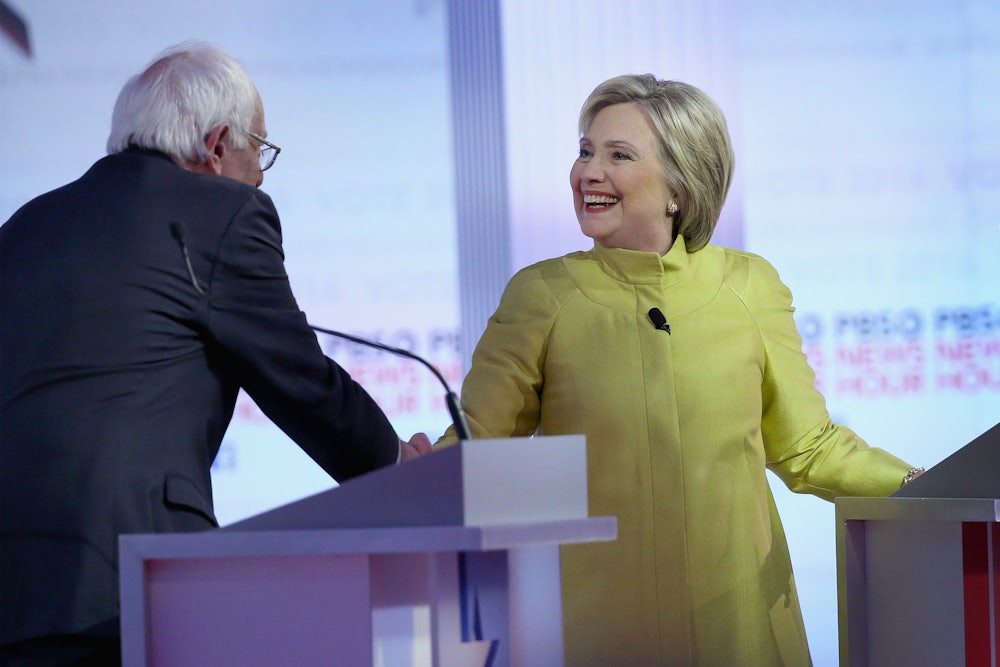Thursday night’s Democratic primary debate was among the most substantive and subdued of the cycle, and until the end, it was largely drawn from familiar material.
But in the debate’s closing moments, Hillary Clinton sharpened one of her most promising—yet fraught—appeals to the Democratic base. Clinton frequently portrays herself as President Obama’s natural heir. On Thursday night, for the first time, she effectively portrayed Bernie Sanders as one of President Obama’s most inconstant allies.
Clinton has been using Obama as a human shield for weeks, and (as expected) she touted his achievements and their relationship throughout the debate. But tonight she was able to deploy her fidelity to Obama in a way that isolated Sanders from the cherished and undisputed leader of the Democratic Party.
In a Thursday interview with MSNBC, Sanders attributed the public’s misgivings about Congress to a lapse of presidential leadership—an implicit but pointed critique of Obama’s performance in office. Clinton used Sanders’s comments as a jumping-off point not just to align herself with Obama, but to write Sanders out of Obama’s legacy. She cited Sanders’s decision to blurb a new book by liberal writer Bill Press called Buyer’s Remorse about progressive disenchantment with Obama, and reminded viewers that Sanders openly called for Obama to face a primary challenge from the left in 2012.
Obama certainly has greater enemies in politics than Sanders—but that was in many ways Clinton’s point. Sanders lays setbacks at Obama’s feet that should rightly be attributed to Republicans and the right’s massive resistance to his presidency. Sanders’s disenchantment with Obama thus isn’t a just a simple question of loyalty or partisanship, but a reminder of the political naïveté that makes him imagine he’d face any less resistance.
Of course, Clinton was also creating as much daylight as possible between Sanders, who is popular among progressives, and Obama, who is the most popular progressive in America. It appeared to work.
Sanders objected to Clinton’s attack so strenuously (he called it a “low blow”) because he understands just how askance Democratic voters in Nevada and South Carolina will look at someone who was willing to risk ousting Obama from the White House after only one term. His rebuttal—“One of us ran against Barack Obama. I was not that candidate”—was quick-witted, but glib and off-point, too.
It’s genuinely impossible to say whether weaponizing Obama like this will help Clinton, or if she even needs the help. Iowa and New Hampshire were difficult contests for her, but they’re also extraordinarily unrepresentative of the national Democratic electorate, with whom she still enjoys a robust lead. If it helps at all, it will be by discouraging Democratic primary voters from giving Sanders a close look.
But Clinton will still have intrinsic difficulty convincing young voters and progressives that Obama’s successor should be an institutionalist rather than an insurgent. If Clinton wants Sanders supporters to reconsider her—or to begin to think of her as Obama’s rightful heir—she will need the president to endorse her.
For more on the primaries, subscribe to Primary Concerns, a new podcast hosted by Brian Beutler.
